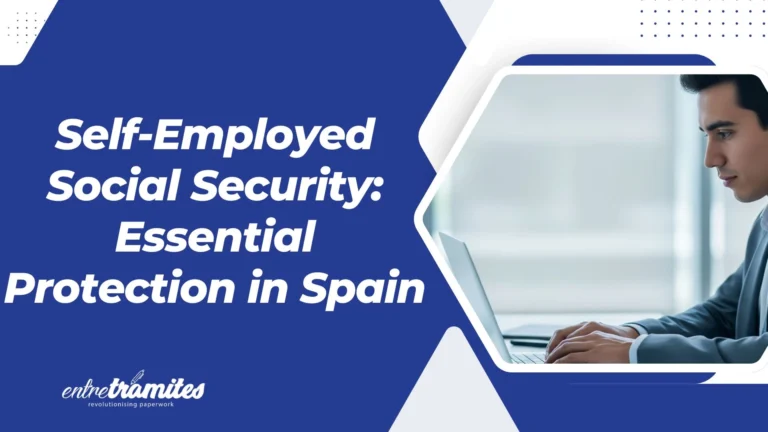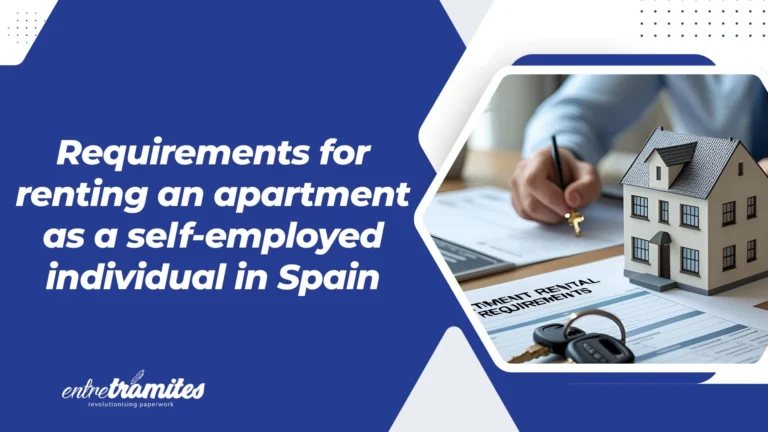The income tax for the self-employed in Spain is one of the most important procedures that self-employed workers have to complete each year. In 2025, this process will be adapted to the current regulations and requires a well-informed approach to avoid mistakes The self-employed income tax return is one of the most important procedures that self-employed workers have to complete each year. In 2025, this process will be adapted to the current regulations and requires you to be well informed in order to avoid mistakes and take advantage of the available deductions. Below, we tell you everything you need to know to file your tax return correctly and smoothly.
What Is the Tax for the Self-Employed in Spain?
The tax for the self-employed refers to the annual income tax return (Declaración de la Renta) where freelancers report income and expenses to calculate their Personal Income Tax (IRPF).
For 2025, the campaign runs from 2 April to 30 June 2025. If your return shows an amount due and you want to use direct debit, the deadline is 25 June 2025.
Essential Documentation for Freelancers
Before starting, make sure you gather all required documents:
- Income and expense ledgers: issued invoices, deductible expenses, and activity records.
- Withholding certificates: from clients who applied withholdings.
- Bank statements: for financial yields.
- Quarterly tax forms (130 or 131): showing advance IRPF payments.
Having everything ready helps you compare your own records with the fiscal data generated by the Tax Agency in Renta Web.
Key Points to Review in Your Tax Return
When accessing Renta Web (with Cl@ve, digital certificate, or reference number), review carefully:
- Applicable deductions: office rent, utilities, amortizations, insurance, professional services.
- Income and invoices: must match your bookkeeping.
- Aid or subsidies: such as Social Security bonuses or cessation of activity benefits.
- Personal deductions: maternity, pension plan contributions, or habitual residence.
A thorough check ensures you claim everything you’re entitled to and avoid costly mistakes.
New Tax Rules for the Self-Employed in 2025
This year, several updates affect freelancers:
- Progressive social security contributions: based on real income.
- New cap for hard-to-justify expenses: up to €2,000 annually under simplified direct estimation.
- Extended deductions: for digitalisation and sustainability investments.
Staying informed about these changes helps you maximize tax savings.
What If Your Return Shows Tax to Pay?
You can split the payment in two instalments without interest:
- 60% at the time of filing.
- 40% by 5 November 2025.
If paying by direct debit, you must set it up by 25 June 2025 (for either one or both instalments).
Frequently Asked Questions
When does the income tax campaign 2025 start for the self-employed?
It starts on 2 April 2025 and ends on 30 June 2025, same as for employees.
Can I file online as a freelancer?
Yes. You can use Renta Web with Cl@ve, a digital certificate, or reference. There’s also phone support (Plan Le Llamamos) and in-person appointments.
Which deductions do freelancers often forget?
Insurance premiums, amortizations, home-office utilities, and pension plan contributions are frequently overlooked.
Filing tax for the self-employed in Spain requires preparation, attention to detail, and awareness of new deductions. By reviewing your fiscal data carefully and keeping deadlines in mind, you can avoid penalties and make the most of your tax benefits.
You can also contact us directly through this contact Form for us to call you, or if you prefer, you can schedule a free consultation or write to us on WhatsApp. We’re here to make the process easier for you!.





